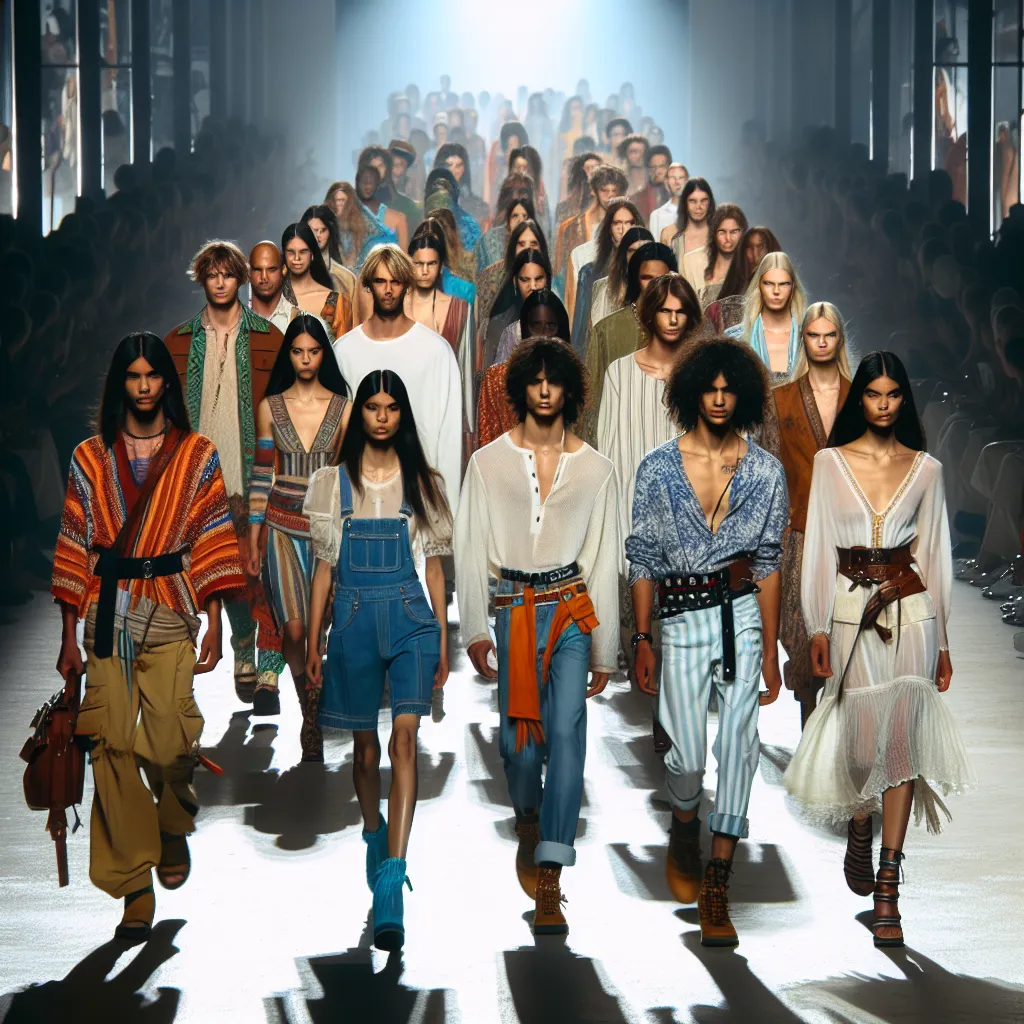
The Rise of Sustainable Fashion: Trends to Watch
The Growing Demand for Ethical Fashion: A Look at Sustainable Practices
The fashion industry is experiencing a significant shift towards sustainability and ethical practices, driven by the growing demand for eco-friendly and socially responsible clothing. Consumers are increasingly aware of the environmental and social impact of their fashion choices, leading to a surge in interest for ethical fashion brands and sustainable practices.
One of the key trends in sustainable fashion is the use of organic and eco-friendly materials. This includes the adoption of organic cotton, hemp, linen, and recycled fabrics, reducing the industry’s reliance on harmful synthetic materials and minimizing environmental pollution. Additionally, the integration of innovative technologies such as 3D knitting and on-demand production is promoting more efficient and sustainable manufacturing processes.
Furthermore, transparency and ethical production practices are becoming essential for sustainable fashion brands. Consumers are demanding greater transparency regarding the entire supply chain, from sourcing raw materials to the treatment of workers in the production facilities. This has led to the rise of certifications and labels that verify a brand’s commitment to ethical and sustainable practices, fostering trust and loyalty among environmentally conscious consumers.
In response to the growing demand for ethical fashion, many established and emerging fashion companies are embracing sustainable initiatives, including waste reduction, ethical labor practices, and carbon footprint reduction. Some are also exploring circular economy models, emphasizing the reuse, recycling, and upcycling of garments to minimize waste and extend product lifecycles.
Overall, the rising demand for ethical fashion is reshaping the industry, compelling fashion brands to prioritize sustainability and social responsibility. As consumers continue to advocate for ethical practices, sustainable fashion is poised to become the new standard, driving positive change towards a more environmentally conscious and socially ethical industry.
Eco-Friendly Materials: The Future of Fashion Innovation
One of the most prominent trends in the fashion industry is the rise of sustainable fashion, with a particular focus on eco-friendly materials. As the awareness of environmental issues continues to grow, consumers are demanding more transparency and accountability from fashion brands. This shift has led to an increase in the use of innovative eco-friendly materials that are not only better for the planet but also for the people involved in the production process.
One of the key drivers of this trend is the development of new eco-friendly materials that offer viable alternatives to traditional fabrics. For example, advancements in technology have led to the creation of sustainable alternatives to leather, such as pineapple leather (Piñatex) and mushroom leather, which are not only cruelty-free but also biodegradable. Additionally, recycled materials, including plastic bottles and ocean waste, are being used to create high-quality fabrics, reducing the fashion industry’s reliance on virgin resources.
Furthermore, the future of fashion innovation lies in the exploration of cutting-edge materials such as lab-grown textiles made from bacterial cellulose and proteins, offering a sustainable and cruelty-free alternative to traditional fabrics. These materials not only have a significantly lower environmental impact but also open up new possibilities for creative and unique designs.
In conclusion, the use of eco-friendly materials is shaping the future of fashion innovation, offering a pathway towards a more sustainable and ethical industry. As consumer demand for transparency and sustainability continues to drive change, it is clear that the fashion industry is embracing these innovative materials as key drivers of progress towards a more environmentally conscious future.
Consumer Consciousness: Shaping the Shift Towards Sustainable Fashion
Consumer consciousness is playing a pivotal role in shaping the shift towards sustainable fashion. As more consumers become aware of the environmental and ethical impact of their purchasing decisions, there has been a significant rise in demand for sustainable and eco-friendly clothing. This shift is driven by a growing understanding of the fashion industry’s contribution to pollution, resource depletion, and poor working conditions. Consequently, consumers are now seeking transparency and accountability from fashion brands, prompting them to embrace more sustainable practices.
This trend is evident in the increasing popularity of eco-friendly materials such as organic cotton, recycled polyester, and innovative sustainable fabrics made from materials like seaweed or orange fiber. Consumers are actively seeking out products that are made with minimal environmental impact and are produced under fair labor conditions. Additionally, there is a rising interest in second-hand and upcycled fashion, as consumers recognize the value of extending the lifecycle of clothing and reducing waste.
Furthermore, the influence of social media and digital platforms has empowered consumers to hold brands accountable for their sustainability claims. With greater access to information, consumers are engaging in discussions about sustainable fashion practices and advocating for systemic change within the industry.
In response, fashion brands are adapting their strategies to align with consumer values, integrating sustainability into their core business models. This consumer-driven demand for transparency and ethical practices is undeniably shaping the future of fashion, emphasizing the need for a more responsible and sustainable approach throughout the entire supply chain.



